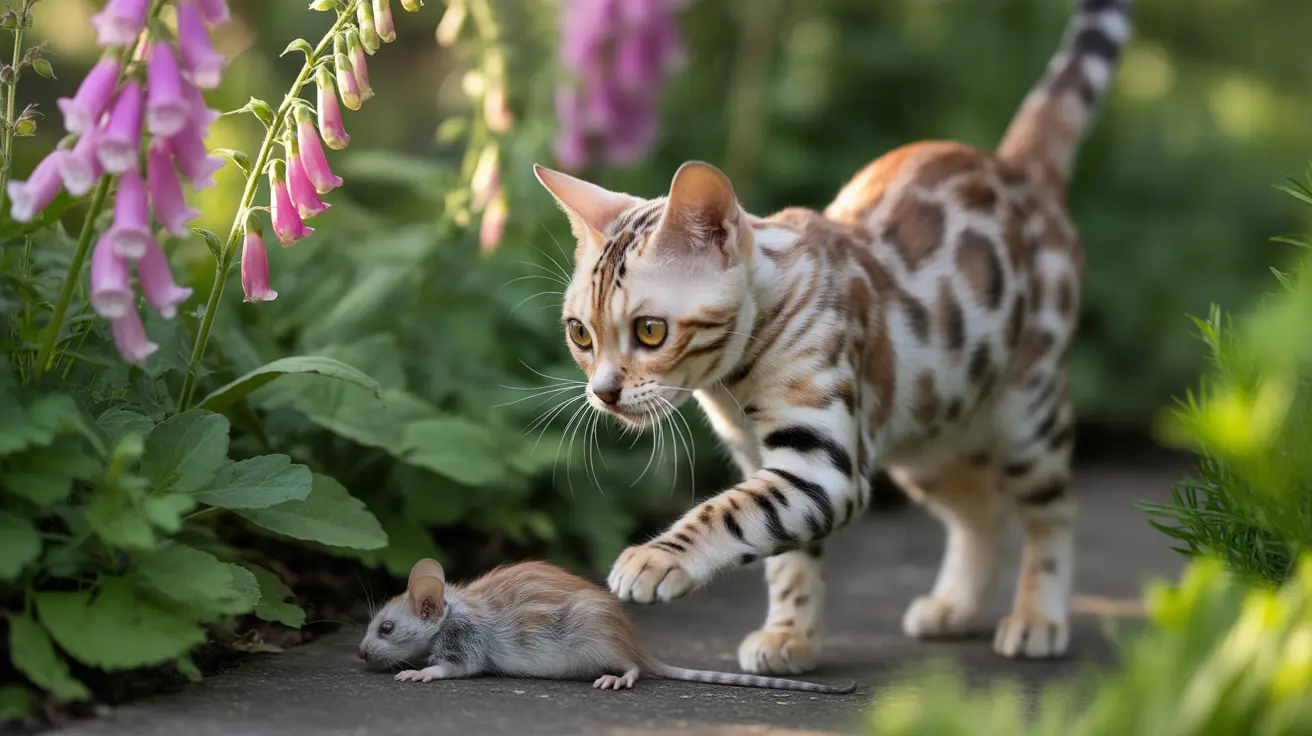Discovering your cat has eaten a poisoned mouse can be terrifying for any pet owner. Secondary poisoning through consuming contaminated prey is a serious emergency that requires immediate action. This comprehensive guide will walk you through the crucial steps to take, symptoms to watch for, and how veterinarians treat this potentially life-threatening situation.
Understanding the severity of secondary poisoning and knowing exactly what to do could save your cat's life. Let's explore the immediate actions you should take and what to expect during treatment.
Immediate Actions When Your Cat Eats a Poisoned Mouse
The first hours after your cat consumes a poisoned rodent are critical. Take these immediate steps:
- Contact an emergency veterinarian immediately
- Don't induce vomiting unless specifically instructed by a vet
- Collect any remaining poison packaging or the dead rodent (using gloves)
- Monitor your cat closely for unusual behavior
- Keep your cat calm and comfortable during transport to the vet
Understanding Secondary Poisoning Symptoms
Secondary poisoning symptoms may not appear immediately, often developing 2-5 days after exposure. Watch for these warning signs:
Early Warning Signs
- Lethargy or weakness
- Loss of appetite
- Pale gums
- Unusual bleeding or bruising
- Vomiting or diarrhea
Severe Symptoms
- Nose bleeds
- Blood in urine or stool
- Difficulty breathing
- Seizures or tremors
- Collapse
Veterinary Treatment Process
Your veterinarian will implement a treatment plan based on several factors, including the type of poison and time since ingestion. Common treatments include:
- Induced vomiting (if recent ingestion)
- Administration of activated charcoal
- Vitamin K1 therapy for anticoagulant poisoning
- Blood tests to assess clotting function
- Supportive care and monitoring
- Possible blood transfusions in severe cases
Prevention and Future Safety
Protect your cat from future poisoning incidents by implementing these safety measures:
- Use pet-safe rodent control methods
- Keep all chemicals and poisons securely stored
- Monitor your outdoor cat's hunting behavior
- Remove dead rodents promptly using protective gear
- Consider indoor-only alternatives for your cat
Long-term Monitoring and Recovery
Even after initial treatment, your cat may need ongoing care and observation:
- Follow-up veterinary appointments
- Regular blood work to monitor clotting factors
- Extended vitamin K treatment if necessary
- Careful observation for recurring symptoms
- Dietary and activity modifications during recovery
Frequently Asked Questions
What should I do immediately if my cat eats a poisoned mouse?
Contact your veterinarian immediately. Don't wait for symptoms to appear, as early intervention is crucial for successful treatment. Bring any evidence of the poison if possible.
What are the early signs that my cat might be suffering from secondary poisoning after eating a poisoned rodent?
Early signs include lethargy, loss of appetite, pale gums, and unusual bleeding or bruising. These symptoms may take 2-5 days to appear after exposure.
Can a veterinarian induce vomiting or give antidotes if my cat has ingested poisoned prey?
Yes, veterinarians can induce vomiting if the ingestion was recent. They can also administer specific antidotes like Vitamin K1 for anticoagulant poisoning, along with supportive treatments.
How long after eating a poisoned mouse do symptoms usually appear in cats?
Symptoms typically appear 2-5 days after ingestion, though this can vary depending on the type and amount of poison involved.
What preventive measures can I take to protect my cat from secondary poisoning caused by rodenticides?
Use pet-safe rodent control methods, keep all chemicals securely stored, monitor outdoor cats closely, and remove dead rodents promptly using protective gear. Consider keeping cats indoors to prevent exposure.
Remember, quick action and professional veterinary care are essential when dealing with potential poisoning. Never attempt to treat your cat at home, as this could worsen their condition. With prompt treatment, most cats can recover fully from secondary poisoning.






